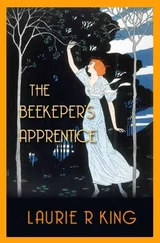Sarah D'Almeida - The Musketeer's Apprentice
Здесь есть возможность читать онлайн «Sarah D'Almeida - The Musketeer's Apprentice» весь текст электронной книги совершенно бесплатно (целиком полную версию без сокращений). В некоторых случаях можно слушать аудио, скачать через торрент в формате fb2 и присутствует краткое содержание. Жанр: Триллер, на английском языке. Описание произведения, (предисловие) а так же отзывы посетителей доступны на портале библиотеки ЛибКат.
- Название:The Musketeer's Apprentice
- Автор:
- Жанр:
- Год:неизвестен
- ISBN:нет данных
- Рейтинг книги:4 / 5. Голосов: 1
-
Избранное:Добавить в избранное
- Отзывы:
-
Ваша оценка:
- 80
- 1
- 2
- 3
- 4
- 5
The Musketeer's Apprentice: краткое содержание, описание и аннотация
Предлагаем к чтению аннотацию, описание, краткое содержание или предисловие (зависит от того, что написал сам автор книги «The Musketeer's Apprentice»). Если вы не нашли необходимую информацию о книге — напишите в комментариях, мы постараемся отыскать её.
In a search for his apprentice's killer, Musketeer Porthos rallies his friends to discover who was responsible, pursuing the truth even as he puts his own life in danger.
The Musketeer's Apprentice — читать онлайн бесплатно полную книгу (весь текст) целиком
Ниже представлен текст книги, разбитый по страницам. Система сохранения места последней прочитанной страницы, позволяет с удобством читать онлайн бесплатно книгу «The Musketeer's Apprentice», без необходимости каждый раз заново искать на чём Вы остановились. Поставьте закладку, и сможете в любой момент перейти на страницу, на которой закончили чтение.
Интервал:
Закладка:
D’Artagnan didn’t seem impressed, Porthos noted. In fact, one of the reasons he liked D’Artagnan, he decided, was that the young man seemed as little impressed with Aramis’s or Athos’s pronouncements as most other people were with Porthos’s.
“What if the boy used a false name? What if his family is truly not who he said it was? If the Cardinal is involved…” D’Artagnan said.
Aramis looked about to dismiss the comment out of hand. He got that fighting light to his green eyes that normally meant he was about to dismiss something as a piece of idiocy. But something seemed to come to his mind that stopped the protest on his lips. The mouth he’d opened, closed with a snap, and he frowned at D’Artagnan as if the boy had done something to annoy him. For a while he was quiet, glaring. Then he said, “Well, what do you suggest then?”
D’Artagnan shrugged. “I don’t know what to suggest,” he said, opening his hands in an expression of helplessness. “I’d say describe him, but description alone might not be enough. How many boys of eleven or twelve do you think there are, running around Paris? And how many who might have red hair, or wear a good violet velvet suit?”
Aramis glared more. Porthos wondered if D’Artagnan was intimidated by the glare. Himself, he had long ago learned that Aramis glared like this when he was thinking. Or rather, when he was forced to think along lines he did not wish to pursue.
After a long while, Aramis looked away, then raised his hand, slightly folded and, seeming to look intently at his impeccably manicured nails, said, “I do have some ability to sketch. I could draw the boy’s likeness, and copy it, so that each of us would have a quick drawing of him, to be used in asking people if they have seen him.”
“You’re a painter?” Porthos said.
Aramis looked up, a defensive expression in his gaze. “Not a painter,” he said. “I merely do a little sketching. In pen and ink or in coal. A very quick likeness. My mother…” He blushed and cleared his throat. “It is a pastime of my mother’s and she taught it to me when I was very young.”
“No doubt,” Athos said, drily with just a hint of humor in his voice indicating that he was joking. “Thinking that like all well-bred young ladies you’d need the art.”
Aramis blushed, the color coming to his face in a tide. He reached for his sword, but never allowed his hand to touch it, making himself drop his arm straight alongside his body, instead. “Do you wish me to do it, or not? Whatever you think of the ability, or even of how I came by it, doubtless it would be useful, would it not?”
“Please,” Porthos said, before Athos could open his mouth. “It would be very useful, yes. In fact, I don’t know how we can do it without your help.”
“Indeed,” D’Artagnan agreed, seemingly catching on.
“It would be very useful to all of us.”
They both glared at Athos, who only nodded and said, “Very useful.”
Bazin was sent to Aramis’s lodgings for paper and the sort of charcoal used for this work. While he was gone, the four friends debated what to do.
“The best we can do, I think,” Aramis said. “Is to ask at any lodgings around here where a noble family might be who has a son who looks like this. How far do you think he walked, Porthos?”
Porthos shrugged. “I got the impression he didn’t walk very long,” he said. “Half an hour at most. He sometimes said he had run the whole way and while…” He felt his throat close at the thought of how young the boy was. “He was very young and therefore full of energy, I don’t think he could have run much more than a quarter league, perhaps? ”
“So it would have to be lodgings hereabouts,” Athos said, thoughtfully. He’d placed himself at some distance from the corpse and leaning against a wall, looked at all of them detachedly. “Within the area that we, ourselves, live.”
“His suit is not very good,” Aramis said and, before Porthos could protest that it was fabric of the best quality, he added. “It is good velvet, I’ll grant you, and well cut. But it was not cut for him. It is too big in places and too small in others, and the breeches are much too short.”
“Sometimes,” D’Artagnan said. “Families of minor nobility do buy-”
“Used suits,” Aramis said, levelly. “Indeed, I am not a fool. I know that families do try to save money, particularly when the boy is young and still growing. But mind you, if they are minor nobility, or even”-he waved away an objection none of them had attempted to make-“if they are the highest nobility but he is the youngest of many boys and inherited his brothers’ clothing, then this would be a child who would be sent for errands everywhere. Everyone in this area would have seen him-from wine merchants to laundresses. In the country the youngest son would get charged with minding the livestock or exercising the horses. In the city, he’ll be sent for a bottle of wine for his father and a silk kerchief for his mother.”
“And so you suggest?” Athos asked.
“That we go out,” Aramis said. “I shall take Porthos, and we shall go to the palace. To the people we know there.” He allowed himself a quirk of the eyebrow. “From maids to noblemen, I’m sure if the family has gone to court at all someone will have seen the boy or heard of him. I’ll ask around, also, to theology professors and monks and see if anyone had taken him on to teach him, since his family intended him for the church. And I think you and D’Artagnan could perhaps ask around here? Within the distance a boy might run here? Porthos, where did you find him?”
“Down the alley,” Porthos said. “Past the smithy and the flowering roses that spill over the wall. There’s an inn there, or at least the back wall of it. The front door faces the street on the other side. He was sitting against the wall and he seemed to be dreaming with his eyes open.” He wished he knew, if it truly was poison, how long it would take to act, and how far the boy might have come. He didn’t know how to put these thoughts into words.
Looking down at the boy hurt. Though he’d been dead a little while now, and though he looked pale, it was not so much the look of one dead as of a child on the verge of falling asleep. The eyes looked up at the ceiling, blankly, and there was no sign of anguish. If one looked at him long enough, there was the feeling he would presently get up and smile and say wasn’t it a good joke, and hadn’t he fooled them all.
Porthos was used to his corpses having more blood on them, or more signs of violence. The boy looked like he’d been stunned, not killed. And yet Porthos was not a child. He knew what dead meant. This was no prank. There would be no waking up, no talking, no more fencing lessons. There would be nothing, now, for Guillaume.
With a pang, Porthos realized he would miss the boy, and let a heavy sigh escape him. As Aramis looked in his direction, he said, “Sangre Dieu” and for once Aramis did not scold him for the blasphemy, just inclined his head and said nothing.
At that moment, Bazin came in, with a wooden box which, upon opening, contained several sheets of paper and some dark sticks of what appeared to be charcoal of different tones. Porthos moved nearby to watch Aramis work. The younger man’s fingers moved quickly over the page, drawing a likeness of Guillaume with what appeared to Porthos like divine ability. The boy’s sharp nose emerged, and his slightly too square chin. You could tell if he’d grown to his full size and maturity he would one day have been a square-jawed man. You could see his face would have gained bulk and a certain solidity.
Porthos looked away as the scene had become inexplicably shaky. It was possible his eyes were full of tears, but he’d refuse to admit it. Instead, he swallowed hard, and swallowed again, and looked at the door, which was ajar, allowing only a sliver of light in.
Читать дальшеИнтервал:
Закладка:
Похожие книги на «The Musketeer's Apprentice»
Представляем Вашему вниманию похожие книги на «The Musketeer's Apprentice» списком для выбора. Мы отобрали схожую по названию и смыслу литературу в надежде предоставить читателям больше вариантов отыскать новые, интересные, ещё непрочитанные произведения.
Обсуждение, отзывы о книге «The Musketeer's Apprentice» и просто собственные мнения читателей. Оставьте ваши комментарии, напишите, что Вы думаете о произведении, его смысле или главных героях. Укажите что конкретно понравилось, а что нет, и почему Вы так считаете.










